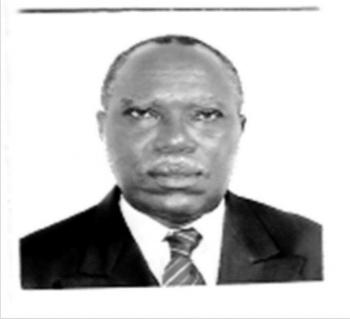‘LOOKS CAN BE DECEPTIVE’

|
IWAS IN THE PETROL station waiting for a friend to join me for a trip to another city, when suddenly an argument erupted between a hefty young man and his petite colleague. From my vantage position I could hear their conversation. It was centred on money. I was almost certain, from the fierceness of the argument, it would end up in physical combat. I quickly surveyed my position to ascertain that I would not come to any harm should this happen. Consequently, I decided to move away a little, out of harm’s way. As I completed the move, I said to myself, “I hope and pray this small man will not provoke this huge and lanky fellow to a fight that he cannot possibly win.” It crossed my mind momentarily to get out of my car and try to mediate in their quarrel. Common sense prevailed! I quickly dismissed the idea because I had seen arguments in such public places deteriorate into serious fights during which many were injured, buildings and vehicles damaged and quite often the peace-maker suffered the worst injuries. “Prepare to move out of the place if fighting ensued,” I told myself. My assessment was correct! Just then, the big man gave the little man a slap. The small man held on to the big man’s clothes and replied with a blow to his face. A wrestling contest began and to the amazement of all, the huge lanky fellow was on the ground with the small man on top of him pummelling him like a punch bag. My friend arrived at that moment and we drove off before I became an inadvertent witness to a murder! But it set me thinking. “How can a man that big succumb so easily to such a small man, whom I had predicted had no chance against him in a physical contest?” But then, I thought, “Isn’t life just like that?” Life is not about size! Appearances are notoriously deceptive! One of the reasons I had gone into specialising in ophthalmology after my medical degree was because I had thought that the eye, being a very small organ, would be relatively easy to master and I could easily “know it all.” This “small eye” is not just about size! I had spent 6 years in the university to qualify as a medical doctor, the primary degree which qualified me to obtain a provisional licence to practise medicine. Thereafter I went through a mandatory intern-ship or (houseman-ship) which is a one year apprenticeship which qualified me to become a fully-fledged medical doctor. Without this internship no graduate of medicine can practise medicine. You cannot even go for the compulsory National Youth Service, to say the least! After the National Youth Service, a young medical practitioner may decide to become a General Medical Practitioner or proceed to a 4-6year postgraduate medical training in about 16 of the medical and dental specialities to qualify as a Medical Specialist in his chosen field. Ophthalmology is one of these and I opted for it. Thus I qualified as a General Ophthalmologist after six years of rigorous training. There is no end to knowledge! The field of ophthalmology itself has 9 sub-specialities. After training as a General Ophthalmologist for 4 to 6years, one may decide to spend 1-2years fellowship training in one of the 9 divisions of ophthalmology. These are Corneal and Anterior Segment; Vitreo-Retinal, Glaucoma, Paediatric Ophthalmology, Orbito-Plastic, Ocular Pathology, Uveitis, Neuro-Ophthalmology and Community/Public Health Ophthalmology. All these are aimed at improvement in the quality of eye care and the competence of the practitioner. This small eye is a very complex organ. It is highly respected by medical practitioners but often looked at as easy prey by charlatans and professional quacks. They are causing more pain and blindness! I still have a lot more to learn about the eye now than when I embarked on the journey to acquire more knowledge in ophthalmology over forty years ago. Certainly, I will never be able to “know it all.” New technology, genetics and innovations in diagnosis and treatment have conspired to ensure that one is kept on his toes all the time. These new developments have created daunting challenges. Twenty years ago, we had less than 100 ophthalmologists, we needed about 350! We have surpassed that figure but with the sophistication in eye care and increasing population, the need has now risen to a minimum of 5000 ophthalmologists. |
© 2024 - Catholic Archdiocese of Ibadan





